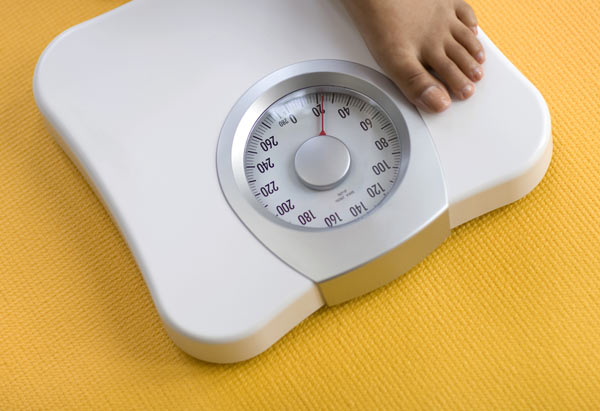4 Ways to Spot A Diet Scam
David L. Katz, MD, busts the bogus claims of some of today's best-known weight loss programs.

Photo: Thinkstock
An astounding 65 percent of American adults are overweight, according to the Centers for Disease Control and Prevention. No wonder it's a seller's market for fad diets, which come in many flavors: Atkins advocates a high intake of fat; the Zone pushes protein and restricts carbohydrates. Sugar Busters claims low-fat diets don't work. There's the blood type diet, the warrior diet (fast all day, binge at night), the vats-of-cabbage-soup diet. How can you tell which highly touted weight loss plan is sound and which isn't?

This article is part of Oprah.com's 2011 Feel Good Challenge. Join now—and move closer to the life you want!
To avoid wasting time and money on a diet that won't hold up for more than a few weeks—and may damage your health—look for these red flags:
1. Defiant claims of a renegade genius.
Watch out for a diet guru who professes to understand nutritional science but rejects it, contending that prevailing views on weight control are misguided. Posing as an unconventional genius who perceives truths mere mortals can't see is an easy way to get attention. Conventional wisdom is indeed wise—and hard earned, the product of painstaking research and long-term observation.
2. Dis-counting calories.
Beware of any regimen suggesting that the key to weight loss lies not in controlling calorie intake but in tinkering with the body's level of a single hormone or chemical, such as insulin (Atkins, Sugar Busters, Carbohydrate Addicts) or eicosanoids, a class of hormone-like substances involved in many body processes, especially the production and prevention of inflammation. (In the Zone, they're called super hormones.) In reality, the regulation of weight involves the complicated interaction of many hormones and chemicals. It also rests on a simple truth: You gain weight when you take in more calories than you use up. If a fad diet works, it's because the dieter lowered her calorie intake. For example, the Zone diet leads to weight loss not because of a magic combination of proteins and carbohydrates but because the diet provides 1,100 calories a day for the average person, a level that usually leads to a weight loss of one to two and a half pounds a week. An initial burst of pound shedding on these diets is mainly from potentially harmful water loss.
3. Enticing testimonials.
Ads for fad diets generally offer convincing quotes from highly satisfied customers. These are as easy to obtain as they are meaningless. The quotes may come from the brief period of peak satisfaction. How do these folks feel six months later, when the weight is likely to have come back? The ads don't say.

This article is part of Oprah.com's 2011 Feel Good Challenge. Join now—and move closer to the life you want!
To avoid wasting time and money on a diet that won't hold up for more than a few weeks—and may damage your health—look for these red flags:
1. Defiant claims of a renegade genius.
Watch out for a diet guru who professes to understand nutritional science but rejects it, contending that prevailing views on weight control are misguided. Posing as an unconventional genius who perceives truths mere mortals can't see is an easy way to get attention. Conventional wisdom is indeed wise—and hard earned, the product of painstaking research and long-term observation.
2. Dis-counting calories.
Beware of any regimen suggesting that the key to weight loss lies not in controlling calorie intake but in tinkering with the body's level of a single hormone or chemical, such as insulin (Atkins, Sugar Busters, Carbohydrate Addicts) or eicosanoids, a class of hormone-like substances involved in many body processes, especially the production and prevention of inflammation. (In the Zone, they're called super hormones.) In reality, the regulation of weight involves the complicated interaction of many hormones and chemicals. It also rests on a simple truth: You gain weight when you take in more calories than you use up. If a fad diet works, it's because the dieter lowered her calorie intake. For example, the Zone diet leads to weight loss not because of a magic combination of proteins and carbohydrates but because the diet provides 1,100 calories a day for the average person, a level that usually leads to a weight loss of one to two and a half pounds a week. An initial burst of pound shedding on these diets is mainly from potentially harmful water loss.
3. Enticing testimonials.
Ads for fad diets generally offer convincing quotes from highly satisfied customers. These are as easy to obtain as they are meaningless. The quotes may come from the brief period of peak satisfaction. How do these folks feel six months later, when the weight is likely to have come back? The ads don't say.



